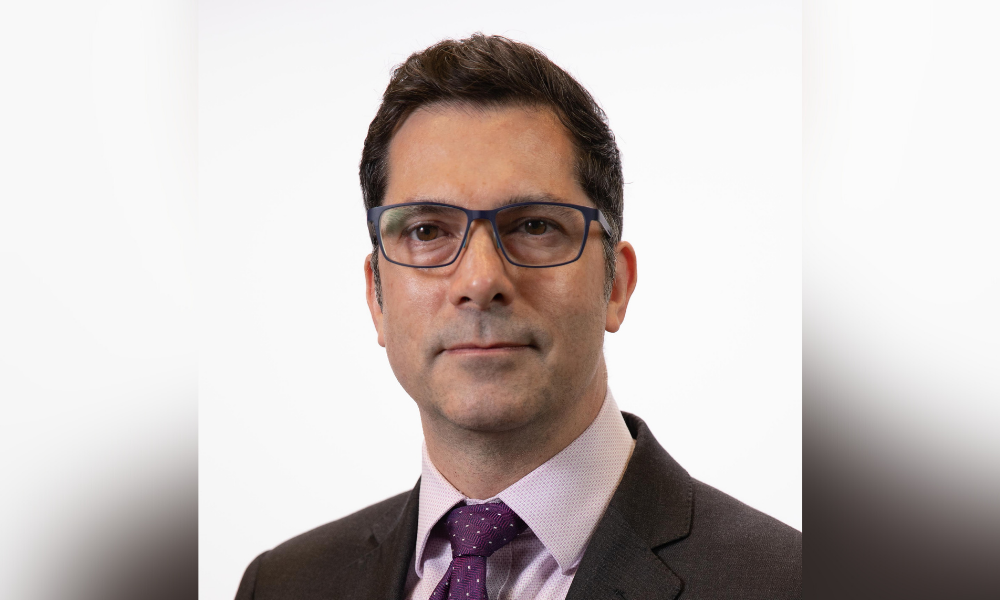
Scotiabank offers sessions to 90,000 employees on unconscious bias, inclusive hiring practices

Scotiabank is banking on the power of allyship to move forward diversity, equity and inclusion (DEI) in the workplace.
Earlier this month, the company hosted an “Allyship Summit for Change” for its 90,000 employees. The summit featured sessions on why allyship matters, unconscious bias and privilege, inclusive hiring and best practices.
“We realized that demonstrating allyship is a way that all of our employees can be active in creating an inclusive culture where everyone can thrive,” says Dominic Cole-Morgan, senior vice president of total rewards at Scotiabank, in talking with Canadian HR Reporter.
Two in three Canadians believe that a culture of inclusion is more important now than it was prior to the start of the pandemic, however, 58 per cent are not sure how to get involved and help, according to a survey from Scotiabank.
Also, being a good ally is important to 80 per cent of Canadians, found the survey of over 1,500 respondents conducted in May 2021.
Recently, Publicis Groupe Canada launched a series of diversity, equity and inclusion (DEI) initiatives for 2022 founded on four key pillars: education, outreach, talent management and giving back.
The pillars of diversity and inclusion are about recruiting and improving the representation of equity-deserving groups through recruitment, and creating a culture where all employees can thrive, says Cole-Morgan.
“Not a lot of employees do recruitment or resourcing, but every employee can impact what the environment feels like when people come,” he says. “For us, it was about finding something that was very tangible for employees so they can become very active in diversity, equity and inclusion. And that was through becoming a great ally.”
Previously, Ottawa launched the 2022 Open Call for Concepts for the Workplace Opportunities: Removing Barriers to Equity (WORBE) program, which aims to break down barriers in federally regulated workplaces.
Allyship is about being an ally to one’s self, to equity-deserving groups and to other populations you interact with, he says.
“If you see something, how do you address it with your colleagues, whether the person is on the receiving end or the person is delivering any communication or messaging? What the allyship thing is meant to do was to make that a little bit more concrete for the employees, to give them the tools and skills to take allyship forward.”

Dominic Cole-Morgan
The allyship summit is also important amid the "great resignation," according to Cole-Morgan.
“Any organization that casts itself off from different equity-deserving groups as a talent population is potentially cutting themselves off from the best person for the role. So we want our people here to thrive and be engaged because we think they’ll do their best work,” he says.
“We also recognize that this is, for us, something which we hope will resonate with the diverse talent outside the organization, and therefore they’ll want to join Scotiabank as a company where they can thrive.”
Kenji Yoshino, Chief Justice Earl Warren professor of constitutional law at NYU School of Law and director of its Center for Diversity, Inclusion, and Belonging, was one of several who shared their expertise at Scotiabank’s summit.
"Allyship is one of the most exciting developments in the diversity, equity and inclusion field. We're increasingly finding that the barriers to belonging are often small but ubiquitous. Allyship is a solution that is capable of overcoming these barriers by engaging them in the infinite and infinitesimal ways they arise," he says.
Several companies are coming up with solutions to address barriers to employment for people with disabilities. A few of them received funding provided by the Inclusive Design Challenge: Access to Work launched by urban innovation non-profit MaRS and CIBC, which called on innovators to submit solutions meant to help remove barriers to employment faced by Canadians who live with a disability.